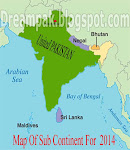Book Review:
Gen. Pervez Musharraf, Pakistan's military president, is a contradictory figure: a dictator convinced that he's the best hope for democracy, a moderate Muslim reluctant to confront fundamentalists, a powerful man who exudes confident aplomb but suffers from lifelong insecurity as a migrant in his own land.
In the Line of Fire, Musharraf's English-language memoir, is an equally contradictory effort to explain himself to a Western world that largely views Pakistan as a fount of Islamist terrorism, a potential nuclear threat and an impoverished, military-ruled desert in the sullen shadow of shining, democratic India. In pursuit of international absolution, Musharraf -- who seized power in 1999 -- devotes many pages to his vision of a modern Pakistan, his values as a soldier, his disillusionment with corrupt civilian leaders, his efforts to seek peace with India and his contributions to the war on terrorism.
Last month, he launched an extraordinary pre-publication charm offensive in New York and Washington. The bespectacled general bantered easily with Jon Stewart on The Daily Show and earned an impromptu sales boost from President Bush after a joint White House press conference. ("Buy the book," a smiling Bush told reporters.) But before it hit the stores, In the Line of Fire had been dissected by a wide array of critics. In the United States, Musharraf kicked up a storm by accusing a former deputy secretary of state, Richard L. Armitage, of threatening to bomb Pakistan "back to the Stone Age" in the wake of 9/11 if it chose al-Qaeda and its Taliban hosts over the United States. (Armitage has acknowledged the stark tenor of his message but flatly denied making such a military threat.) In India, outraged critics focused on Musharraf's description of a summit with India, where he charges that its then-prime minister, Atal Bihari Vajpayee, backed out of an agreement over the disputed territory of Kashmir because mysterious higher powers had overruled and "humiliated" Vajpayee.
But the worst vitriol came from Pakistan itself, where some critics trashed the book as a self-serving rewrite of history that betrays the nation's interest. For example, Musharraf goes to great lengths to prove that Pakistan's 1999 invasion of the mountainous Kargil district of Kashmir, a political and military disaster, was a triumph that will someday be "written in golden letters." Others expressed outrage at Musharraf's excoriation of A.Q. Khan, the Pakistani scientist who is believed to have sold nuclear know-how to pariah regimes such as Iran, North Korea and Libya but who remains a hero to many Pakistanis. Musharraf, under heat from Washington over Khan's activities, portrays him here as a greedy rogue who somehow managed to hide all his evil deeds from the government.
Many of the negative notices ring true. Alternately coy and candid, Musharraf glosses airily over unanswered questions, denies widespread reports that leaders of Afghanistan's Taliban movement are operating inside Pakistan and portrays himself as staunchly opposed to Islamic fundamentalism, even though he has backed off on many reforms in deference to radical clerics. Even when expressing noble sentiments, Musharraf can undercut his message with clumsy insults and undiplomatic observations that might have been better left unsaid. (After all, how do you edit a dictator?)
But despite its limits as a window into history, In the Line of Fire offers valuable insights -- sometimes intentionally, sometimes not -- about an important U.S. partner in the war on terrorism whose powerful, secretive military-intelligence apparatus was once the Taliban's chief patron.
At some points, the story is gripping simply because the author was at the center of it. Much has been written about the coup that brought Gen. Musharraf to power after then-president Nawaz Sharif tried to fire him while he was on a commercial plane heading home from a foreign trip.
Now, we are finally in the cockpit of the fuming general's plane as his pilot is ordered not to land -- even though the craft has only moments of fuel left.
The most compelling episodes are the operations launched to hunt down al-Qaeda operatives and suicide bombers, especially after two attempts on Musharraf's life in 2003. The dutiful reader is snapped to attention by dramatic chases that read like a thriller, full of fascinating details that only an insider would know -- and perhaps outsiders should not. For instance, Musharraf reveals that, during various operations, Pakistani agents have found a piece of shirt collar from a suicide bomber and traced it to his hometown tailor, used an elaborate system to track cell phone use among suspects, and covered themselves in burqas to shadow and snatch a major al-Qaeda figure.
In Musharraf's zeal to prove his counterterrorist bona fides, he exaggerates the importance of some captives and gloats over successful missions, clearly enjoying the experience of calling Bush in May 2005 to say Pakistan has captured an al-Qaeda leader, Abu Faraj al-Libbi. (Musharraf then undiplomatically calls Libbi "the one al Qaeda operative whose name Bush knew, apart from Osama bin Laden and Dr. Ayman al-Zawahiri.")
The book also airs some military dirty laundry that may infuriate Musharraf's own institutions. The general acknowledges hurt and bewilderment at being passed over for promotions early in his career, much as he confesses to schoolboy pranks and slights of a half-century ago after his family fled India during the chaotic partition that created Pakistan in 1947.
In his writing, as in many of his public comments, Musharraf can prove both his own best salesman and his own worst enemy. Still, this memoir tells us a great deal about a military Muslim leader we need to understand -- and about a country to which we should have been paying much more attention.
download the complete book.
Pamela Constable, a deputy foreign editor at The Washington Post, reports frequently from Pakistan and Afghanistan.
PAK ELECTRON LTD
15 years ago


0 comments:
Post a Comment